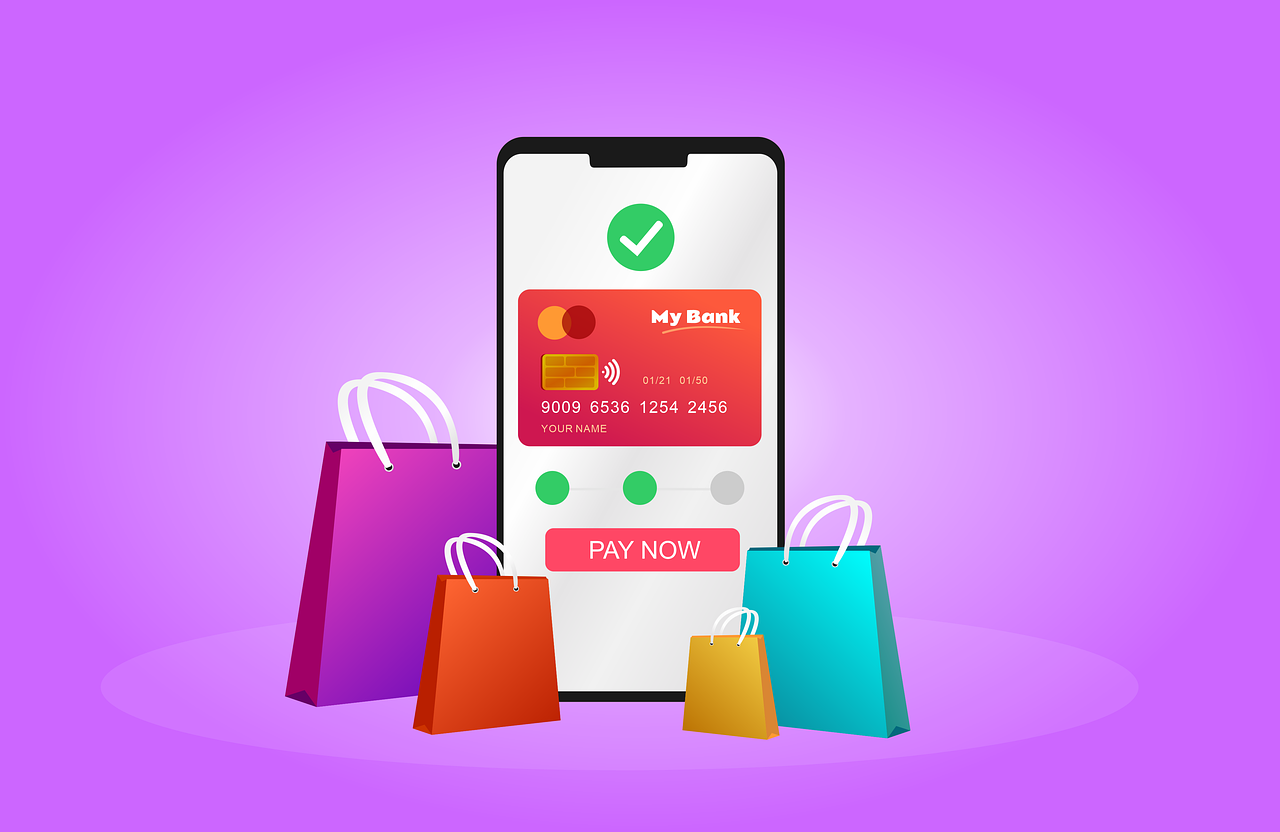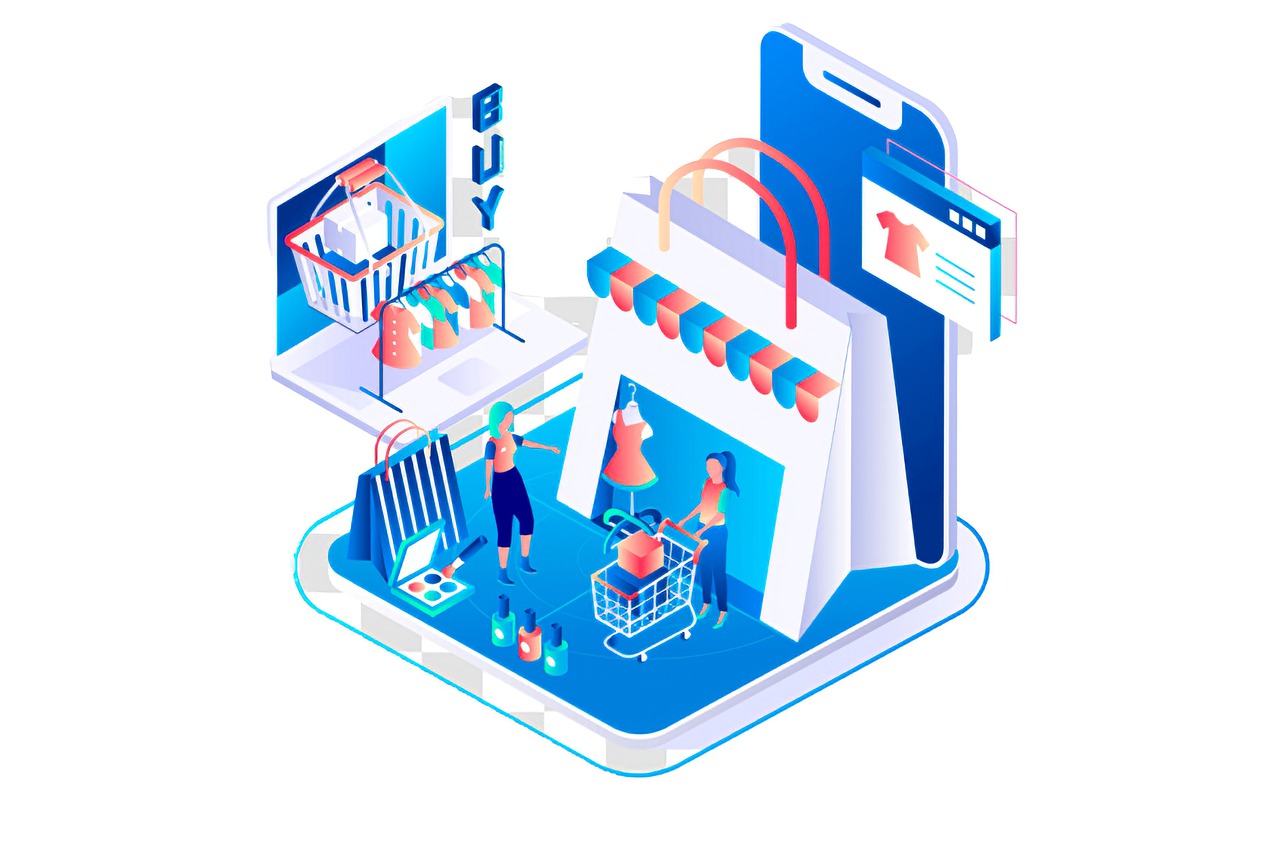Mobile Commerce Trends To Watch in 2022
Looking for the latest trends in mobile commerce? You’re in the right place. The pandemic and subsequent lockdowns forced businesses and customers alike to shop online. By now, everyone knows that businesses should work fluidly both on their website...

Looking for the latest trends in mobile commerce? You’re in the right place.
The pandemic and subsequent lockdowns forced businesses and customers alike to shop online. By now, everyone knows that businesses should work fluidly both on their website and mobile versions — the line between eCommerce and mCommerce has practically disappeared.
Hard Facts
eCommerce has never been as successful as it is now – it’s valued at $4.2 trillionIn 2021, mobile eCommerce raked in some $3.5 trillion and made up almost three-quarters (72.9%) of eCommerce sales (according to Statista)The mCommerce market is expected to register a CAGR (Compound Annual growth rate) of 27% by 2021-2026As you can see, mCommerce is becoming the new norm. Let’s see which mobile eCommerce trends are growing in 2022.
What is Mobile Commerce?
Mobile commerce, also known as mCommerce, is a subset of eCommerce and refers to transactions (purchases) made via smartphones. Digital wallets like Apple or Samsung Pay simplify purchases to a few clicks (no need to enter card data). mCommerce apps allow location tracking via GPS to offer their customers help finding items in store.
Examples of mCommerce include mobile banking, in-app purchasing, virtual marketplace apps like the Amazon mobile app, and digital wallets (Google Pay, Apple Pay, Android Pay, Samsung Pay).
Three Challenges in Mobile Commerce
The one-time buyers. According to Forbes, 75% of brand customers do not purchase from the same online shop. So the main challenge, for now, is customer retention — even more than new customer attraction.
The evolution of devices. New versions and models of smartphones appear rapidly, so mobile app developers should also upgrade their software constantly to be up-to-date and competitive.
Safe payments. To make purchases through mobile applications, customers need to provide their personal data, such as address or card number. It’s certainly easier to use pre-saved data, but that means that anyone with access to someone else’s smartphone can steal their money. Secure payment solutions are one of the most sensitive future trends in mCommerce.
mCommerce Trends for 2022
Shopping with voice searchOmnichannel marketingAugmented realityShopping in social media appsInteraction with customers through conversational AIGamificationLocation-targeted marketingNow, let’s take a quick look at the mobile commerce trends with the biggest reach.
Shopping With Voice Search
Voice search is much easier and faster than typing. It has become a new trend in marketing, so the availability of voice search technology is a must-have mCommerce trend for businesses.
Voice search is the new big thing in organic searches. According to Statista, the value of purchases made by voice will reach around $40 billion in 2022 from $2 billion in 2017.
To optimize your business for voice search, keep your content conversational and include long-tail keywords that answer questions beginning with the 5Ws (who, what, when, where, and how). Don’t ignore the local search and “people ask” sections either.
Omnichannel Marketing
In an era of high competition for clients, omnichannel marketing plays a significant role. Customers use a variety of methods to order purchases depending on their preferred platforms. In order to make your clients happy, you need to cover all the possible online spaces that they might use. In short, if you sell your product only through Instagram, you’re missing buyers from other sources.
Omnichannel marketing is not just about providing buying options; it is about communicating with clients during the whole customer journey. Using an omnichannel marketing strategy will help you follow the trends in mobile commerce.
Augmented Reality
One of the most challenging things in online shopping is the inability to hold an item in your hands or try it on. But with an augmented reality app, you can show the product in action. AR helps brands to build more sustainable relationships with customers. Google reports that 66% of people say they are interested in using AR for shopping help.
As an example, Modiface provides a range of realistic AR try-on solutions for beauty brands (Sephora, L’Oréal, etc.) IKEA also launched the IKEA place app, which allows customers to virtually arrange furniture in a room.
AR features are one of the most promising mobile commerce trends, and you shouldn’t ignore them as you evaluate your strategy at the start of this year.
Shopping in Social Media Apps
Social media apps are flourishing, and for many millennials and “zoomers,” it’s the only place that they get information from brands. Social media gives businesses opportunities to communicate with their customers directly.
Social platforms such as Facebook Shop, Instagram Shopping, and Pinterest Business allow businesses to convert their followers into customers. Brands can browse their products and sell without leaving the app.
According to Alter Agents research, two-thirds of shoppers buy on social media, and 77% are millennials and Gen Z. Just remember, young people prefer to use Snapchat, TikTok, or Instagram, rather than Facebook — this mCommerce trend may help you optimize your marketing strategy correctly.
Interaction With Customers Through Conversational AI
Conversational AI is a program that imitates human conversation and communicates with people. It is an excellent instrument for leading and retaining a customer through the sales funnel. It provides personalized customer service, so every interaction feels unique and relevant.
Most mCommerce platforms have conversational chatbots that are not relevant nowadays. Rule-based chatbots follow a predetermined set of guidelines, so if a customer asks a chatbot for information that is not already programmed in the script, it will fail.
The most advanced versions of conversational AI are virtual customer/employee assistants. These applications can carry context from one interaction to the next, enhancing the user experience.
Gamification
People love games because they’re fun! More and more companies are trying to retain customers with the help of gamification marketing, which has become one of the biggest mobile commerce trends. Among the most popular types of gamification are spin-the-wheel functions, trivia, and scavenger hunt games.
Let’s take, for example, Clarins’ success story. The company launched the roulette-wheel game “Beauty Wheel” on a dedicated landing page. This game helped Clarins generate more than 8,500 leads and activate 4,000 coupons, with a lead/impression ratio of over 45%. As a result, the brand transformed this marketing campaign into a constant feature.
Location-Targeted Marketing
Location-based marketing allows businesses to reach their customers by messaging based on a client’s location. Here are some tactics of that mCommerce trend that you should consider using in your marketing strategy.
Geofencing uses geolocation to send relevant ads to smartphone users. So for the ad, you choose a concrete location and everybody in your target zone receives ads.
There are two types of geofencing: SMS-based and app-based. SMS-geofencing sends ads in text messages, whereas app-based notifications are delivered as push or in-app notifications.
Geo-conquesting is a form of geofencing where you create a virtual target zone around your competitors’ shops but not yours. This way, you lure your competitors’ audience to your store instead.
Geotargeting creates a target audience based on past visits to specific locations.
Conclusion
To summarize the latest trends in mobile commerce, businesses must adapt because trends change quickly. So if you still don’t have a mobile commerce app configured or updated according to the latest trends, now is the best time to start. Modern mobile commerce application builders offer easy-to-use and accessible mobile app templates for online stores, so you don’t even need to hire dedicated developers to create an mCommerce app. Stay tuned for my next article on how to choose the best mCommerce app platform!

 Kass
Kass 































